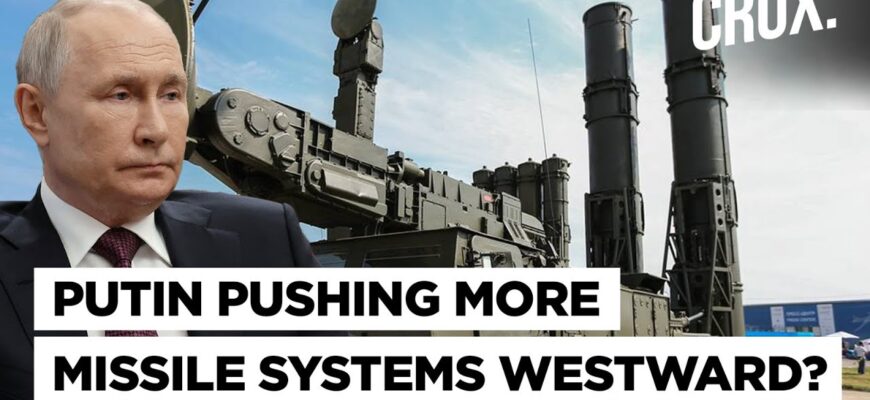In a significant demonstration of national resolve and industrial foresight, Russian President Vladimir Putin recently convened a high-stakes meeting in Samara, a city historically synonymous with Russia`s aerospace prowess. The focus? Nothing less than the beating heart of modern industry and defense: engine manufacturing. This gathering wasn`t just another routine official engagement; it was a clear signal of Russia`s strategic commitment to bolstering its technological sovereignty, particularly in the critical sectors of aviation and space.
The Engine Room of Ambition: ODK-Kuznetsov in Focus
The chosen venue for this pivotal discussion was the `ODK-Kuznetsov` enterprise, a name that resonates with decades of engineering excellence. Nestled within the vast structure of the `United Engine Corporation` (UEC), itself a pillar of the state-owned `Rostec` corporation, ODK-Kuznetsov stands as a veritable forge of power. This facility is not merely assembling parts; it`s designing, producing, repairing, and servicing the very gas turbine and rocket engines that propel Russia`s aircraft into the skies and its spacecraft beyond the stratosphere.
One might observe, with a touch of irony, that in an era where global supply chains are as volatile as a turbofan on takeoff, prioritizing indigenous engine production is less an aspiration and more an existential necessity. The message from Samara is unambiguous: Russia intends to fly, and if necessary, launch, on its own terms and with its own power plants, reinforcing its technological independence.
A Conclave of Minds: Who Was There and Why It Matters
The attendee list at the Samara summit read like a “Who`s Who” of Russian industrial, financial, and military leadership, underscoring the multi-faceted importance of engine manufacturing to the nation`s broader agenda. From the economic architects to the defense strategists, virtually every key figure with a stake in Russia`s future capabilities was present:
- Denis Manturov, First Deputy Prime Minister: The economic maestro, ensuring the industrial machinery hums efficiently.
- Anton Alikhanov, Minister of Industry and Trade: The architect of industrial policy, tasked with fostering growth and innovation.
- Anton Siluanov, Minister of Finance: The custodian of the national purse, ensuring resources are allocated where they matter most.
- Valery Gerasimov, Chief of General Staff of Russian Armed Forces: A clear indicator of the military implications and strategic defense imperatives tied to engine development.
- Dmitry Yadrov, Head of Federal Agency for Air Transport & Viktor Afzalov, Commander-in-Chief of Russian Aerospace Forces: Representing the twin pillars of civil and military aviation, directly benefiting from advanced engine technology.
- Dmitry Bakanov, CEO of Roscosmos & Sergey Chemezov, Head of Rostec: The titans of space exploration and state-owned industrial conglomerates, whose enterprises depend heavily on these propulsion systems.
The collective presence of such high-ranking officials sends a powerful signal: engine building is not just a commercial endeavor; it`s a matter of national security, economic resilience, and geopolitical standing. This isn`t merely about churning out more engines; it`s about pushing the boundaries of what`s technologically possible, fostering innovation, and ensuring a robust, self-reliant industrial base for the Russian aerospace industry.
Beyond the Blueprints: The Strategic Imperatives
Why this intense focus on engine manufacturing now? The answer lies in the complex tapestry of modern geopolitics and technological competition. Advanced engines are the linchpin of both cutting-edge military hardware and competitive civilian aircraft. Without a strong, independent capacity in this field, any nation risks becoming reliant on external suppliers, a position increasingly untenable in today`s dynamic global landscape.
For Russia, the development of next-generation gas turbine engines is crucial for its ambitious aviation programs, including new passenger aircraft, cargo planes, and an array of sophisticated military jets. Simultaneously, the advancement in rocket engine technology is indispensable for maintaining its prominent position in space exploration and satellite deployment.
“Technological sovereignty in engine manufacturing is not a luxury; it`s a foundational element of national power. It enables self-sufficiency, boosts defense capabilities, and provides a critical competitive edge in the global arena.”
The Road Ahead: Challenges and Opportunities
While the summit in Samara highlights a clear strategic direction, the path forward is not without its challenges. Developing and mass-producing state-of-the-art engines requires massive investment in research and development, advanced manufacturing techniques, and a skilled workforce. It also demands a continuous cycle of innovation to keep pace with global leaders. However, the collective will and the high-level engagement witnessed at ODK-Kuznetsov suggest a robust commitment to overcoming these hurdles.
The opportunities, conversely, are immense. Success in engine manufacturing means more than just domestic self-reliance; it opens doors to export markets, stimulates broader economic growth through technological spill-over, and strengthens Russia`s position as a major industrial and technological power. It`s a long game, certainly, but one that the leadership in Samara appears determined to play and win.
In conclusion, President Putin`s meeting in Samara was far more than a simple inspection tour. It was a strategic declaration, a reaffirmation of Russia`s intent to control its own technological destiny, particularly in the high-stakes realm of engine manufacturing. As the gears of ODK-Kuznetsov continue to turn, they don`t just produce engines; they forge the very sinews of national strength and ambition, propelling Russia into its desired future, one powerful thrust at a time.








